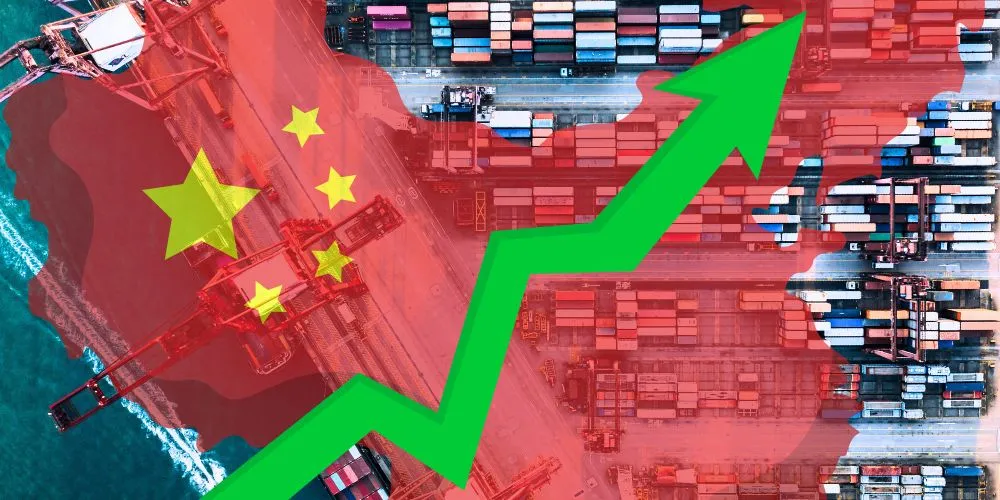Key Points:
- China’s industrial production surged 7% year-on-year in January and February, exceeding expectations; Retail sales also increased by 5.5%.
- The property sector continues to face challenges, with declines in property investment and new construction starts.
- China maintains a growth target of 5% for the year, emphasizing stability amid economic uncertainties.
- Concerns persist over the impact of the property sector’s woes on overall economic growth and market stability.
China’s industrial activity significantly improved at the beginning of the year, boosting policymakers grappling with a prolonged property slowdown. Combined data from the National Bureau of Statistics revealed that industrial production surged 7% year-on-year in January and February, marking the fastest growth rate in nearly two years and surpassing economists’ expectations of a 5% rise. Additionally, retail sales increased by 5.5%, aligning with forecasts.
This uptick in industrial output comes amidst a backdrop of deflation, subdued consumer confidence, and a persistent property cash crunch, which has continued to impact the economy. Despite the positive industrial data, the real estate sector remained under pressure during the same period. Property investment declined by 9% year-on-year, albeit slower than in December, while new construction starts plummeted by 30%, representing the sharpest fall in over a year.
Zichun Huang, China economist at Capital Economics, acknowledged the overall improvement in economic momentum and anticipated further enhancement in the near term. However, she cautioned against the economy’s underlying structural challenges, particularly its heavy reliance on the property sector for economic activity.
Beijing has maintained a growth target of 5% for the year, consistent with the previous year and representing one of the lowest targets in decades. Despite calls for stability during the country’s legislature’s annual meeting, concerns persist over the impact of the property sector’s woes on overall economic growth.
China’s leadership has refrained from implementing significant stimulus measures to address the challenges faced by the property sector, instead prioritizing the completion of existing projects. Property sales by floor area saw a notable decline of 20.5% in the first two months of 2024, reflecting ongoing market challenges.
China Vanke, a prominent developer partly owned by the state-owned metro in Shenzhen, recently faced scrutiny over its sales and the viability of private-sector property development. Overall, funds raised by developers dropped by 24.1% in January and February, with fixed-asset investment rising by 4.2%, likely supported by state-driven initiatives early in the year.
Despite these challenges, urban unemployment slightly increased to 5.3% in the reporting period, highlighting ongoing labor market dynamics.




